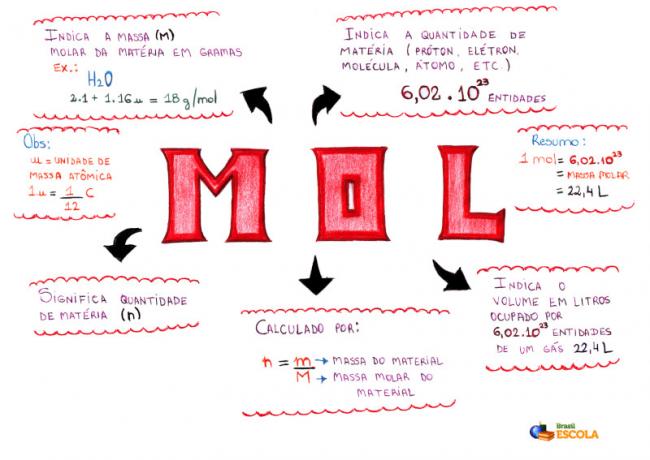The delicious mixture of strawberries with condensed milk has a relationship with physical chemistry, more precisely with Osmosis. Have you ever noticed that after devouring a whole bowl of strawberries sweetened with condensed milk, a redder liquid forms at the bottom of the container that tastes like strawberry?
So, we can consider it to be strawberry juice, but how was it formed? Osmosis has the answer to this phenomenon, check out what it is:
Osmosis is the passage of solvent from an already diluted solution to another with greater concentration, through a semi-permeable membrane.
By mixing condensed milk with strawberries, we obtain a solution with greater concentration, creating a perfect medium for osmosis to take place. But how so?
Strawberry will function as a semipermeable membrane, or rather, the cells present in the outer structure of the fruit. The liquid present in the inner part is the least concentrated solution, if we are going to compare the two solutions already proposals, we will notice that the most diluted is the one on the inside of the strawberry, and the most concentrated is the one on the outside (milk condensed).
We can then conclude that the liquid found at the bottom of the strawberry bowl is nothing but the liquid inside of the strawberry that went through osmosis, that is, from a diluted solution to a more concentrated one until obtaining the balance.
You can see that the same does not happen with other fruits such as grapes, for example, the membrane that covers the grape does not allow the exchange of external and internal fluids.
By Líria Alves
Graduated in Chemistry
Brazil School Team
Do not stop now... There's more after the advertising ;)
See more!
osmosis in the egg - experimental activity.
Physicochemical - Chemistry - Brazil School
Would you like to reference this text in a school or academic work? Look:
SOUZA, Líria Alves de. "Osmosis in strawberry with condensed milk"; Brazil School. Available in: https://brasilescola.uol.com.br/quimica/osmose-no-morango-com-leite-condensado.htm. Accessed on June 28, 2021.



